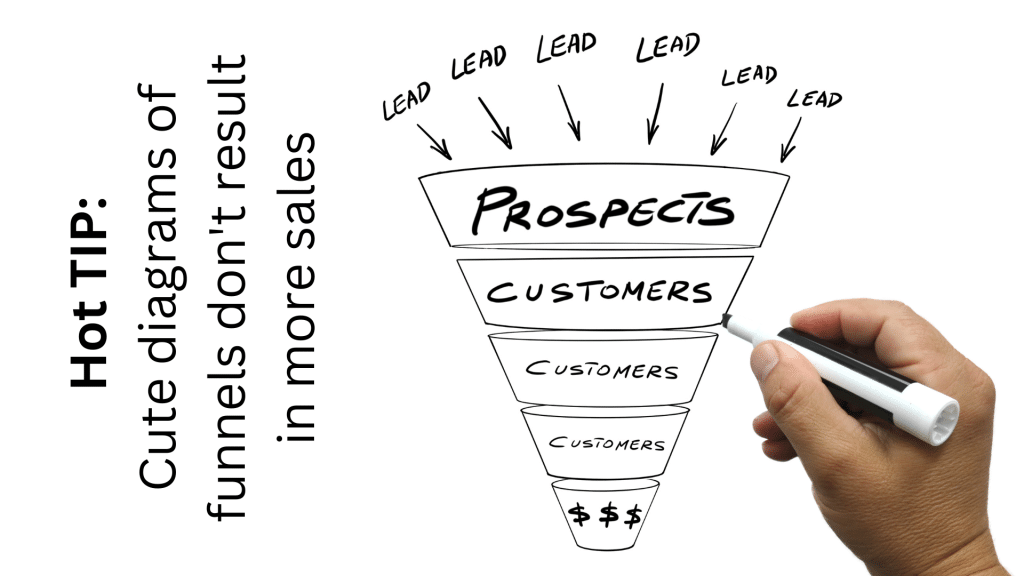Believe it or not. But evaluating your sales and marketing effectiveness can be measured on a scale of 1-100.
One is bad, and 100… well you probably wouldn’t be reading this blog article for insight.
Whilst it’s a broad field, the individual elements of the sales and marketing process can be weighted and attributed to a score. So when you evaluate each individually in the context of your own business, you can slowly build an overall picture and score of how you’re performing.
In reality, business acceleration is next to impossible without collectively performing in each of these areas. So, what are they?

- Brand Positioning isn’t just about pretty colours
Brand positioning is the process of creating a unique snapshot of your brand in the minds of your target audience.
Essentially, a strong brand positioning strategy gives you a unique edge that can help capture the attention of your target market and increase the chances of converting them into loyal customers.
Think about it this way: With so many companies vying for the same audience, it is essential to differentiate yourself and create a unique brand identity that resonates with your prospects.
So many businesses, and so much competition. You must stand out. This means considering everything from typography, to brand colours, to messaging and even the type of imagery you’re using.
The media is crowded with a long list of reasons why consumers have been ‘turned off’ by a brand. It’s nuts.
When your brand consistently demonstrates a unique value proposition, it creates a sense of reliability, fun, irreverent, light-hearted or dependability in the minds of your target market. It creates trust.
For example:
- Are you using the right tone of voice?
- Are you authentic, honest and approachable?
- Do you use communication that is relatable to the target audience?
- Is your content personalised?
- Are you immediately recognisable?
Your target audience is extremely busy and needs to quickly grasp your offer and see the value proposition as it specifically relates to them.
I’ll show you how to collate this information into a score, but just know this represents 20% of the total score.

- The Marketing Effectiveness Matrix
First up, you need to understand your Best Fit organisations, decision-makers, influencers – and the problems they share. This will help you tailor your approach around them. The golden rule of achieving marketing success is to work within your target market’s behavioural model and appeal to them in their environment.
A car salesman won’t sell a car at corner store. It’s about combining brand positioning, target market and marketing execution all into one bucket, and building a strategy from there.
Every marketing strategy must be geared towards providing strong content that speaks to your target audience.
High-value content is crucial to shortening the sales process and demonstrating that you can actually deliver on the promises of your offering.
By providing relevant, strong, and focused information directly to consumers, you can answer questions, provide insight, build hype and convert prospects even before they make official contact with you.
For example, if you’re selling to a CFO, don’t sound like a tech head; speak in their language. Find the drivers, pain points and problems that they want to be solved, and build that into the content you create.
Think about your target at every step:
- Does your content offer something uniquely different?
- Are you using case studies that demonstrate your track record?
- Are your brochures reading like a contract?
- Is your email marketing fun, engaging and unique? (Oh please be unique!)
Scoring yourself in these areas requires taking a very honest approach to self-evaluation. And as this portion takes up a whopping 40% of the sales and marketing matrix, it’s worth scoring correctly (more below).
- How’s your Conversion?
By this point, you’ve captivated your audience to the point where they know what you offer, how you go about executing on that, and what success looks like if they engage you. But…
The sales process is its own beast. In any organisation you’re selling to there are people you’re directly in contact with, AND decision makers behind the scenes, influencers, financial handbrakes and progress killers. It’s a tricky path to navigate.
Strategically nurturing prospects in a way you can deliver content that not only hammers home the benefits to your direct contact but also hits a solution with those behind the scenes, which is very important to fulfilling a successful sales strategy.
There is a full suite of considerations that need to be factored in when developing a sales strategy that converts. A lot is contributed directly from brand positioning and marketing effectiveness but sales nurturing plays its own vital role:
- Refining your pitch to maximise your time and cut out unnecessary steps
- Nurturing clients through a process of discovery to give them clarity and confidence
- Your website should play a vital role in validating and answering the pain points of prospects
- Using sales animations and videos offers succinct information in a convenient package
- Testimonials and case studies demonstrate your ability to deliver on promises.
On the wider angle, examining where prospects fall out of the funnel gives a strong indication of what you need to change. Failure to do this is where most businesses fall down..
Scoring your business
Funnily enough, for you, this is the easy part.
We’ve spent significant time and intellectual property to create a scale that scores your business from 1-100. Our questionnaire asks you 30 simple questions and then calculates a score immediately.
It paints a picture of your business from a sales and marketing perspective with an unmistakable number.
And even better, it provides you with a detailed blueprint of what you can do to improve.
Try our Profit Maximiser Scorecard developed specifically for Tech & SaaS businesses. It takes 3 minutes, gives you instant results and a thorough breakdown of where you’ve gone wrong and what you need to do to fix it.






